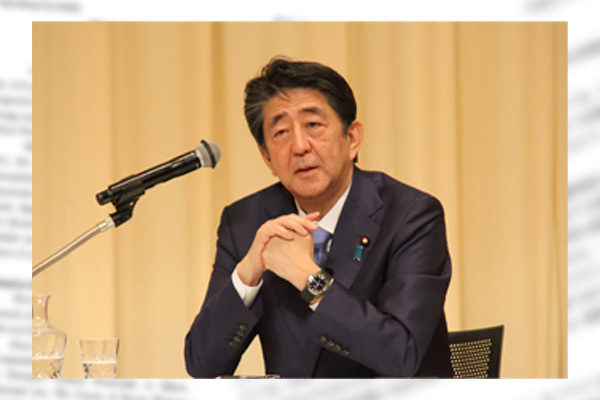The “Shinzo Abe Research Center” has been created at the prestigious National Chengchi University in Taiwan. The center will focus on studying the late former Japanese Prime Minister Shinzo Abe’s Free and Open Indo-Pacific (FOIP) diplomatic strategy and his Abenomics economic policy. Its aim is to promote academic exchanges between Japan and Taiwan, and develop next-generation of talent. At a time when China steps up military and economic coercion and influence operations, it is significant that a site has been created for Japan and Taiwan to develop democracy, the rule of law, freedom, and other values they share.
Significance of expanding Japan-Taiwan exchanges
In his speech at the center’s inauguration ceremony in Taipei on September 21, Taiwanese President Lai Chingte emphasized the importance of the center’s launch on the day, which is Abe’s birthday and the International Day of Peace. He quoted Abe as telling a symposium in December 2021, “A Taiwan emergency is a Japanese emergency, and therefore an emergency for the Japan-U.S. alliance.” Taiwan enjoys peace even in the face of China’s military expansion thanks to the foresight of Abe, who advocated the FOIP strategy and other initiatives to encourage China to exercise restraint and refrain from choosing military means, Lai said, expressing thanks to Abe.
Abe proposed the FOIP at the Tokyo International Conference on African Development in August 2016. The idea has been endorsed by the United States and many other countries and regions. The inclusion of Taiwan into the FOIP initiative can be a part of an international framework to counter China’s potential aggression against Taiwan and its aggressive actions in the South China Sea. Although Japan and Taiwan do not have diplomatic relations, the exchange of opinions between the center and Japanese universities and think tanks could deepen discussions on the roles of Japan and the United States in a Taiwan contingency.
Lai and other guests at the ceremony mentioned in their speeches that Abe played a leading role in supporting Taiwan hit by a major earthquake, providing vaccines to Taiwan during the COVID-19 pandemic, and purchasing Taiwanese pineapples which were barred from China on the pretext of quarantine. The establishment of the center in Taiwan will symbolize the reaffirmation and enhancement of Japan-Taiwan friendship.
Abe followers should rise up
Among guests at the ceremony was Abe’s wife Akie, who told Abe’s funeral in July 2022: “Although I think there were many things my husband left undone as a politician, he planted a lot of seeds while spending his own life. These seeds will sprout out.” She thus placed hopes on Abe followers. However, National Diet lawmakers who had belonged to an Abe-led faction within the ruling Liberal Democratic Party have not recovered from the aftereffects of a political money scandal.
Since Abe’s death, the security environment surrounding Japan has deteriorated rapidly, as symbolized by the joint appearance of Chinese President Xi Jinping, Russian President Vladimir Putin, and North Korean leader Kim Jong Un at a military parade in Beijing on September 3. Abe followers have already been punished within the LDP over the scandal and faced the verdict of voters through a House of Representatives election last year. They do not have to shy away from politics any more. They should work hard to carry on Abe’s will.
Takashi Arimoto is a Planning Committee member at the Japan Institute for National Fundamentals and a columnist at the Sankei Shimbun newspaper.


